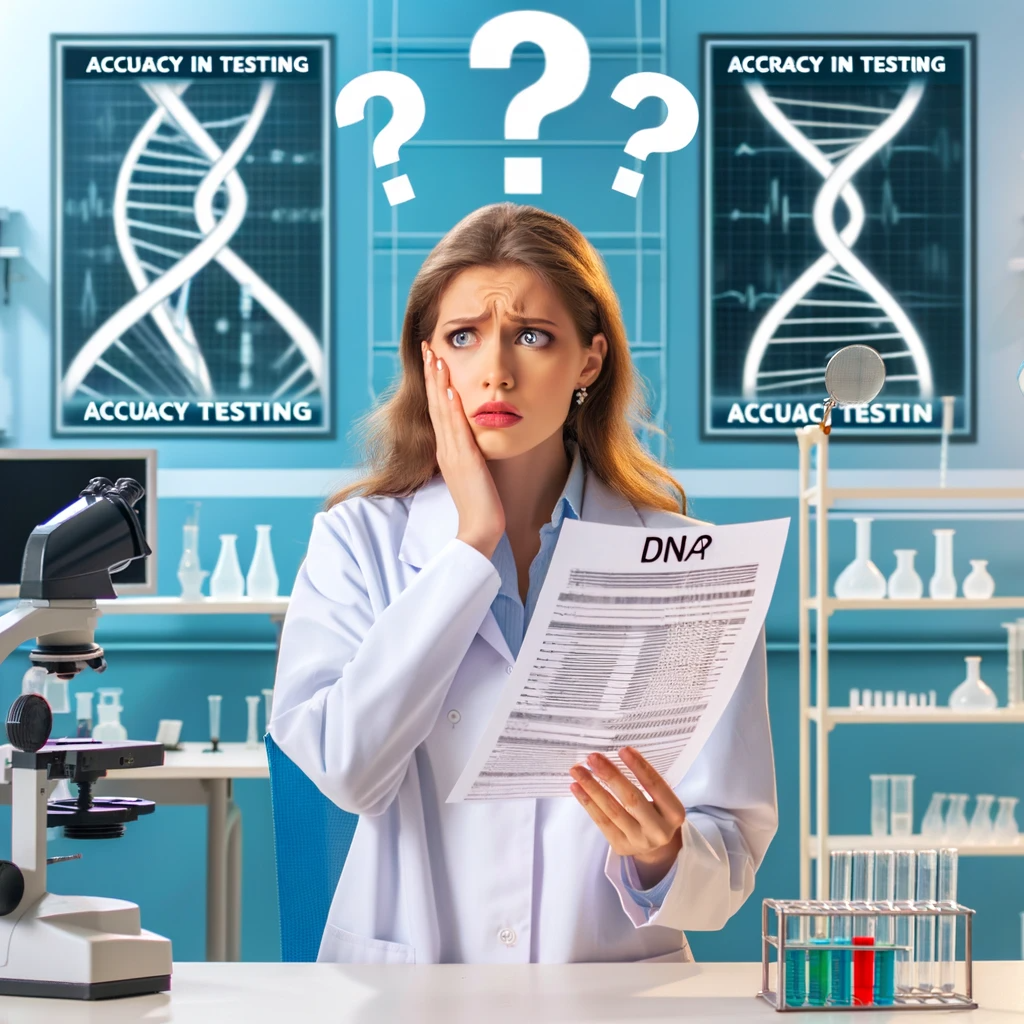Can DNA testing be wrong?
The short answer is no, it's almost always correct.
The short answer is no, it's almost always correct.

Did you or someone you love take a DNA test and the results that came back don’t seem right? Or it doesn’t make sense? This happens to thousands of people every month, and you are not alone.
The short answer to the questions is NO, DNA testing with companies like Ancestry and 23andMe is virtually never wrong. Below is an outline of how DNA test can be wrong, but if you want to talk to a volunteer about your specific results, fill out the form here:
When DNA can be incorrect
DNA testing is a powerful tool that can provide valuable information about a person’s ancestry, genetic predispositions, and relationships with others. It is often used in criminal investigations, paternity cases, and other legal proceedings, as well as for personal or medical purposes. While DNA testing is generally considered to be highly accurate, there are several factors that can potentially lead to incorrect or misleading results.
Contaminated Sample
One of the most common sources of error in DNA testing is the sample itself. DNA samples can be contaminated or degraded, which can affect the accuracy of the test. For example, if a sample is collected from a surface that has been touched by multiple people, it may contain DNA from multiple sources, making it difficult to accurately interpret the results. Similarly, if a sample is exposed to heat, moisture, or other environmental factors, it may break down or become contaminated, leading to inaccurate results.
Laboratory Error
Another potential source of error in DNA testing is the laboratory process. Laboratories that perform DNA testing must follow strict protocols to ensure the accuracy of their results. However, even with the best protocols in place, there is always the possibility of human error or technical problems that can lead to incorrect results. For example, if a laboratory technician makes a mistake while preparing or analyzing a sample, it could lead to inaccurate results. Similarly, if there is a problem with the equipment or software used in the testing process, it could affect the accuracy of the results.
Single Marker Tests
In addition to these factors, there are also certain types of DNA tests that are more prone to error than others. For example, tests that rely on a single genetic marker, such as the Y chromosome or mitochondrial DNA, are generally less accurate than tests that analyze multiple markers. This is because a single marker may not provide enough information to accurately determine a person’s ancestry or relationship to others. Similarly, tests that rely on genetic markers that are prone to mutation, such as those on the Y chromosome, may be less accurate than tests that use more stable markers.
The Reality
Despite these potential sources of error, DNA testing is generally considered to be a very reliable and accurate method of identifying a person’s genetic makeup. Most DNA testing laboratories use multiple, redundant measures to ensure the accuracy of their results, and they are subject to strict quality control measures. In addition, DNA testing has been extensively validated through research and has been widely accepted as a reliable method of identifying genetic relationships and ancestry.
However, it is important to keep in mind that DNA testing is not perfect and there is always the possibility of error. If you are considering DNA testing for personal or medical purposes, it is important to carefully research the testing laboratory and make sure that it is reputable and follows strict quality control measures. It is also important to be aware of the limitations of DNA testing and to understand that the results may not be definitive in all cases.
Overall, DNA testing can be a valuable tool for providing information about a person’s ancestry, genetic predispositions, and relationships with others. However, it is important to be aware of the potential sources of error and to understand that DNA testing is not always definitive. By being informed and cautious, you can help ensure that you get the most accurate and reliable results possible.
